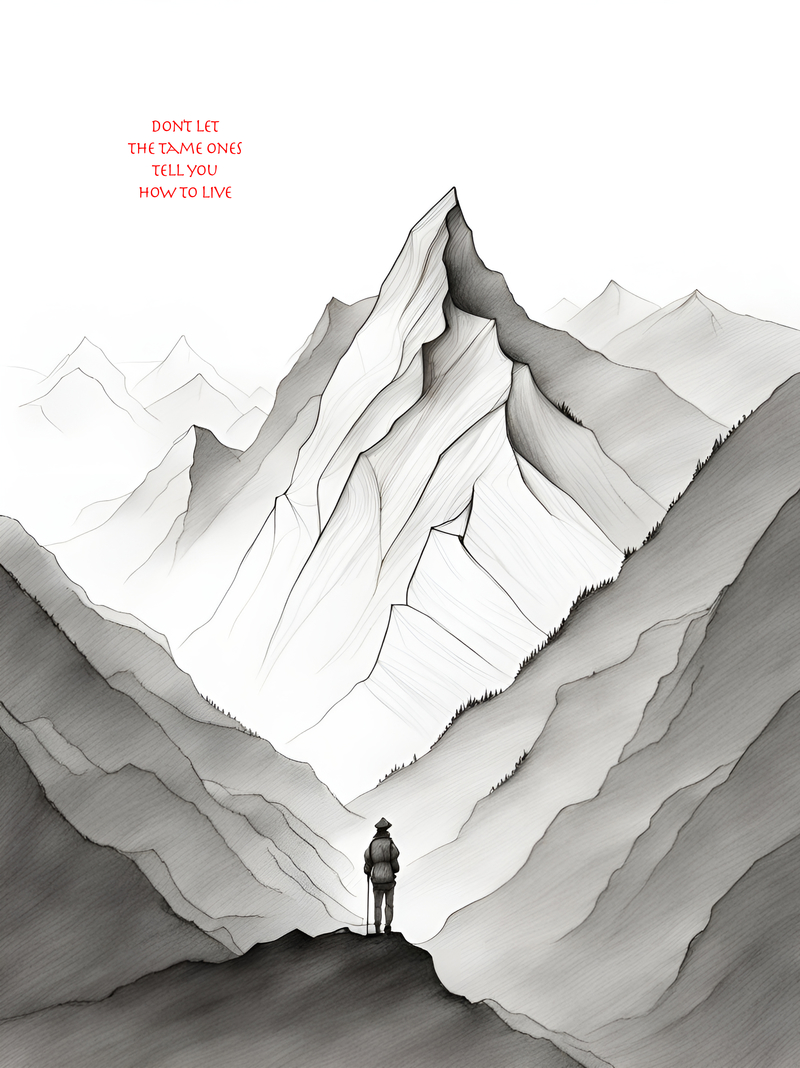“I would say it’s more effective to treat people like children
Understandin’ the time and love and patience that’s needed to grow
This change is inevitable but ain’t none of us seen this before
Therefore we just gotta learn everything as we go”
J. Cole, Snow On Tha Bluff
Beyond the Quote (186/365)
There’s no disrespect in treating people “like children” in this way. It’s actually a brilliant way to look at uniquely challenging situations. For, what’s the difference between adults and children anyway? Development and experience? Adults are obviously developmentally more mature physically, mentally, and emotionally. And beyond that, the only other real difference is experience. Adults have undergone more experiences in their lives which have had more direct effects on how they think, feel, and act. And the reason most adults make better decisions is because their “better” judgement comes from their “bad” judgement remembered. Most children are still in the “bad” judgement phase.
How could they not be? Children are quite literally, inexperienced human beings. The classic example of experiential learning is if you touch the stove when it’s hot, the future you will remember the burn and know not to touch it again. Moreover, if you experience deeply negative feelings from the way another person treated you, then future you will remember to avoid or confront them. If you experience mistreatment because of something you were born with that’s completely out of your control, like the color of your skin, then you start to respond to that mistreatment in a way that protects you, your family, and your friends when similar situations come up. But, when you are confronted with a situation that you’ve never experienced before, you have no past data to use to help you make a decision. You are no better than a child in the “bad” judgement phase.
So, when change strikes, as it does, and strikes in a way that’s beyond your current experience set, rather than speeding up and reacting, consider slowing down and responding instead. And “reacting” and “responding” are not the same thing. A “good” reaction is a quick, knee-jerk action that is taken based on overwhelmingly convincing data that has been learned from past experiences. There is no deliberation, deep thought, or weighing options—they just happen because that’s the action that the person has learned warrants the best response (reactions are “bad” when they are emotional, lack experiential understanding and are, essentially, unconscious). A “good” response to a situation that’s outside of your experiential understanding, on the other hand, requires deliberation, deep thought, and plenty of option weighing because, well, the person’s experience needs to be expanded.
A good example of this is how in Martial Arts training, when a beginner first practices self-defense, their reactions are uncoordinated, messy, and lacking control. They have no experience in the area and so have no proper reactions to the situations being presented. This is why, beginners need to practice slowly, deliberately, and with care—they have to respond to the attacks, not react. It’s when a beginner reacts to an attack without the proper training that somebody gets hurt. It is only after enough training that their mind and body get rewired enough to manifest a proper reaction against the practiced attacks in coordinated, precise, and powerful ways. The same is true for how we handle the inevitable changes of life.
Reacting quickly has it’s time and it’s place and is best done by those who have a depth of experience in the given area(s). For the rest of us, we have to learn how to slow down, obtain the necessary experience, and respond only after we have decided upon the best option that we can research and think up. And we have to learn how to not be so quick to judge those around us for this very reason, too. We don’t know the depth of another person’s life experience—how could we ever? Most of us aren’t even in touch with our own. We just act unconsciously (based on the experiences that we haven’t really ever investigated) and deal with the consequences as we go.
But, if we can learn how to treat ourselves and others more like children, and put to practice the ideas of time, love, and patience—then we’ll all be able to respond in better ways. So, rather than be so quick to hit that “RT” button on Twitter, or fire off a reaction to something you don’t know much about—do your research and come up with a better, more well thought out response. Grow up before you jump into the adult conversations of the world—don’t spew out half-baked, knee-jerk responses that you haven’t put much time or effort into. Take your words and actions seriously. Most people are sheep, J. Cole warns—stay woke and learn to see above their eyes and through your own.
Read Next: 47 Deep and Insightful Ryan Holiday Quotes from Stillness is the Key
NEW In The Shop: Don’t Let The Tame Ones Tell You How To Live [Poster]
Why We ♥ It: Some of the best advice I (Matt here) ever got was: don’t take life advice from people who aren’t living a life you want to live and don’t take criticism from people you wouldn’t go to for advice. I created this poster to act as a reminder to listen more closely to our role models and less closely to our critics, trolls, and tamed-comfort-zone-hugger acquaintances. It’s also a perfect gift for the outdoor adventurer, travel enthusiast, or solo explorer (or soon to be). Available in print or digital download. 👇🏼
...Want to advertise your book, product, or service? Send inquiries to matt@movemequotes.com.

Written by Matt Hogan
Founder of MoveMe Quotes. On a mission to help busy people do inner work—for better mental health; for healing; for personal growth. Find me on Twitter / IG / Medium. I also share daily insights here. 🌱
It has taken me 1,000’s of hours to build this free library for you. If it has helped you, you can support my continued effort here. ☕️
